What does a place like this mean to you?
The significant and urgent historical and social responsibilities aside, here we are given an anxious security. Nail biters.
A normal but scarce sense of security comes from self-control, from the freedom of not being controlled, monitored or invaded, from the conspiracy of a prison made by and for oneself, and negative freedom - in many cases, the sole aim of isolating oneself from the outer world is a sense of security, yet the simple and even trivial notion of security pushes us out from ourselves, in relation to the world, That is to say, if absolute seclusion is possible at all, who needs a sense of security?
Formed in a normal, universal, constitutive right is a property, something like a house, that is first of all internalised as a progerty of our own, when those in the space become a natural extension of the space ( cracking up are Descartes, Lefebvre, Merleau-Ponty, Derrida and Nancy; cracking up is even Hao Jingfang). And immediately, soon enough, the property externalises as a property of yours, developing towards your hospitality or hostility as you invite yourself in. Here, we become easily anxious about the interested visitors. The visitors might mean for us communications, developments; every single utterance - interrogations and comebacks - regarding the social, the commercial, the political and the economic pushes our marginalised practise forward, while rendering all parties involved uncomfortable.
In a temporary, shaky two-story construct that comes with an underground vault - we crack up at ourselves, too: We are the hollow men/ We are the stuffed men/ Leaning together/ Headpiece filled with straw. Alas! - Zhang Ding attempts to consolidate the security inherent to the building, and its internal-external-art-social relations, to make both you and us tremble with the building. Let' s shake it and dance, Big brother' s many eyes look at you, unwillingly anticipating your abyssal gaze; Big brother sings you a lullaby, ordering you to, politely or rudely think of the space as your own to fall into peaceful slumber; Big brother even disposes a couple of bodyguards here, just in case of any danger; Big brother in a radical fashion demonstrates to you the direct opposite of the damp, pitch-black bunker, denying the melancholy derived from either the long history of the space or the people who wander around in the space like ghosts. Or from your presence. From KWM artcenter to Wyoming Project and to The Bunker, this average journey can mean either an ideal and even optimistic escape from others' censor that eventually end up in the renouncement of one' s role as his or her own censor and the ultimate achievement of inner self; or, from The Bunker to Wyoming Project then KWM artcenter, a frustrating departure from oneself that is similar to the feeling of unwillingly leaving one' s home.
With the arrival of a global digital surveillance that is proper to the scale of the Anthropocene, a sense of security thins: other' gaze alone suffices to pop the membrane. It' s sad and funny: when the art world and it' s "viewing" experience have become more hands-on, "interactive" and "performative" than ever, the world snatches art' s most radical defence mechanism - eyeing - as its sharpest, most invasive and corrosive weapon. Big brother doesn' t need to do anything other than putting us in his sight.
The three-story of KWM artcenter, Wyoming Project and The Bunker are not connected by stairs or ladders whatsoever. In this last of meeting places/ We grope together/ And avoid speech/ Gathered on this beach of the tumid river. Zhang Ding was a cage, a butcher' s shop, and a brewery. This time, he flow from one story to another, is a river. As shaky as the three- story construct, as shaky and dangerous as a sense of security. Tripod is a myth.
对于你们来说,这样的地方意味着什么?
对于我们来说,除了重大且紧迫的历史性及社会性的任务或责任外,我们在此得到一种焦虑的安全感。
一种普通但不常能够轻易得到的安全感,来自于自我控制,来自于不被控制、不被侵入的自由,来自于自我禁锢以及负面自由的同时在场——在很多情况下,封闭自我、不与外界产生直接联系的目的便是获得安全感,但是安全感这一概念本身又重新将我们拉入与世界的关系之中去。也就是说,如果我们能够达到一种绝对的封闭,那谁又需要什么安全感呢?
与普通的普世性权利相联系的,是一种财产,这种财产被内化为我们的一种属性,空间成为空间中的人的自然延伸(笛卡尔、列斐伏尔、梅洛-庞蒂、德里达、南希全都笑了,连郝景芳都笑了)。而在内化运动之后,这种财产又马上被外化为你们的一种属性,朝向你们的友好或恶意展开。由此,我们又轻易地因对我们感兴趣的访客而感到焦虑。来访的人们对于我们来说可能意味着交通、发展等,而每一句关于艺术与社会、商业、政治及经济的诘问或回应都在推动我们的冷门实践继续前进的同时,让参与对话的所有人多少感到有一点不适。
在一幢临时的、摇摇欲坠的两层商住两用带地下防空洞空间结构中——我们也是懂得自嘲的:“躲进小楼成一统,管他冬夏与春秋”——张鼎尝试抖擞自然生长于其中的安全感或不安全感,以及与其相对应的内外空间-艺术-社会关系,让作为主人的我们以及作为客人的你们感到悚然。大兄弟的许多只眼睛在注视着你,不情愿地期望得到作为深渊的你的回望;大兄弟也为你吟唱催眠曲,以期待你能够粗鲁或有礼地将这些空间视作是你的(临时)财产,在此安眠;大兄弟甚至为你在这密闭的、空荡的小房子里安插了黑衣人保镖,以备不测;大兄弟也以激烈的方式向你展示了湿哒哒、黑漆漆防空洞的对立面,以让你不再因身处此地而感到难过,以让你暂时忘记这空间悠久的历史,以及如鬼魅一般永远在此游荡的人们。从金杜艺术中心到怀俄明计划再到掩体空间,这段不长不短的路途能够以一种理想的甚至是乐观的方式逃离他人的监视,最终放弃自我监视、到达自己的情感、到达自己的内在性;或,从掩体空间到怀俄明计划再到金杜艺术中心,我们能够充满沮丧地远离自我,就像是要不情不愿地走出自己的家一样。
随着一种与人类纪规模相符的全球数字监控环境的出现,安全感愈发单薄——他人甚至不必行动;他们投来的目光足以捅破这张纸。这是悲哀的,但是也是滑稽的:在当代艺术作为一个整体愈发强调经验必须要手脚并用、愈发强调内部及外部互动性的时候,整个世界将当代艺术的激进防御性机制——观看——挪用为最锋利的、最具入侵性及腐蚀性的武器。大兄弟在此也不要做什么,只要把你我掷于其眼皮底下。
金杜艺术中心、怀俄明计划和掩体空间三层结构之间本没有楼梯;走的人多了,也便成了路。张鼎曾经是牢笼、是肉铺、是酒厂;这一次,他成了一把梯子,这梯子与这三层结构一样摇摇欲坠,但是安全感永远是摇摇欲坠的、险峻的。这里没有三足鼎立似的稳定。
WORKS
openning SCENE
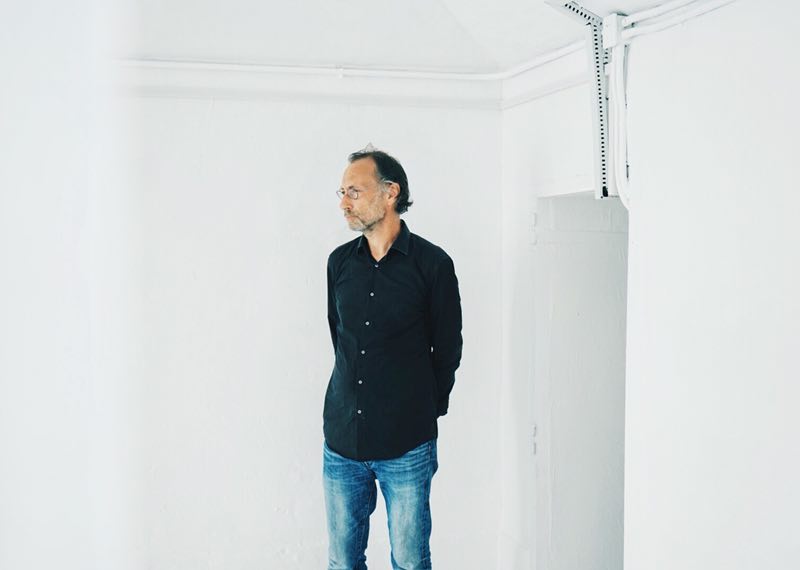
























REVIEW
Mobile Whole and Partial Exhibition—— Zhang Ding | Safe House #3 by Xiaoyang Peng
移动整体和部分展示 ——张鼎 | 安全屋 #3 观后 文/彭晓阳
Has “Safety” become nihilistic?——Text and interview by ARTSHARD
“安全”变成了一种虚无主义的东西——艺术碎片对谈张鼎
publication
《safe house》——ZHANG DING
《安全屋》——张鼎
PDF Download
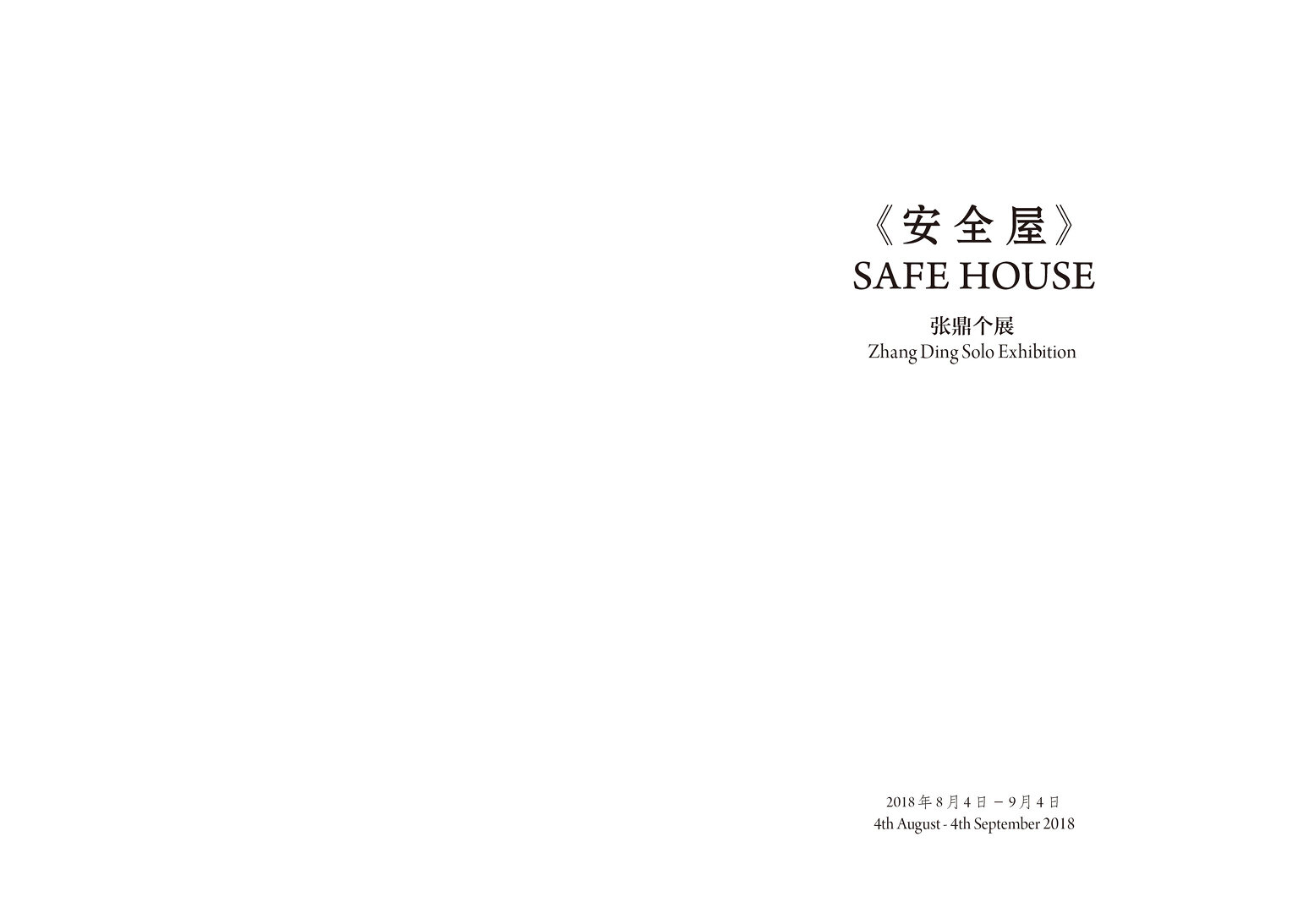
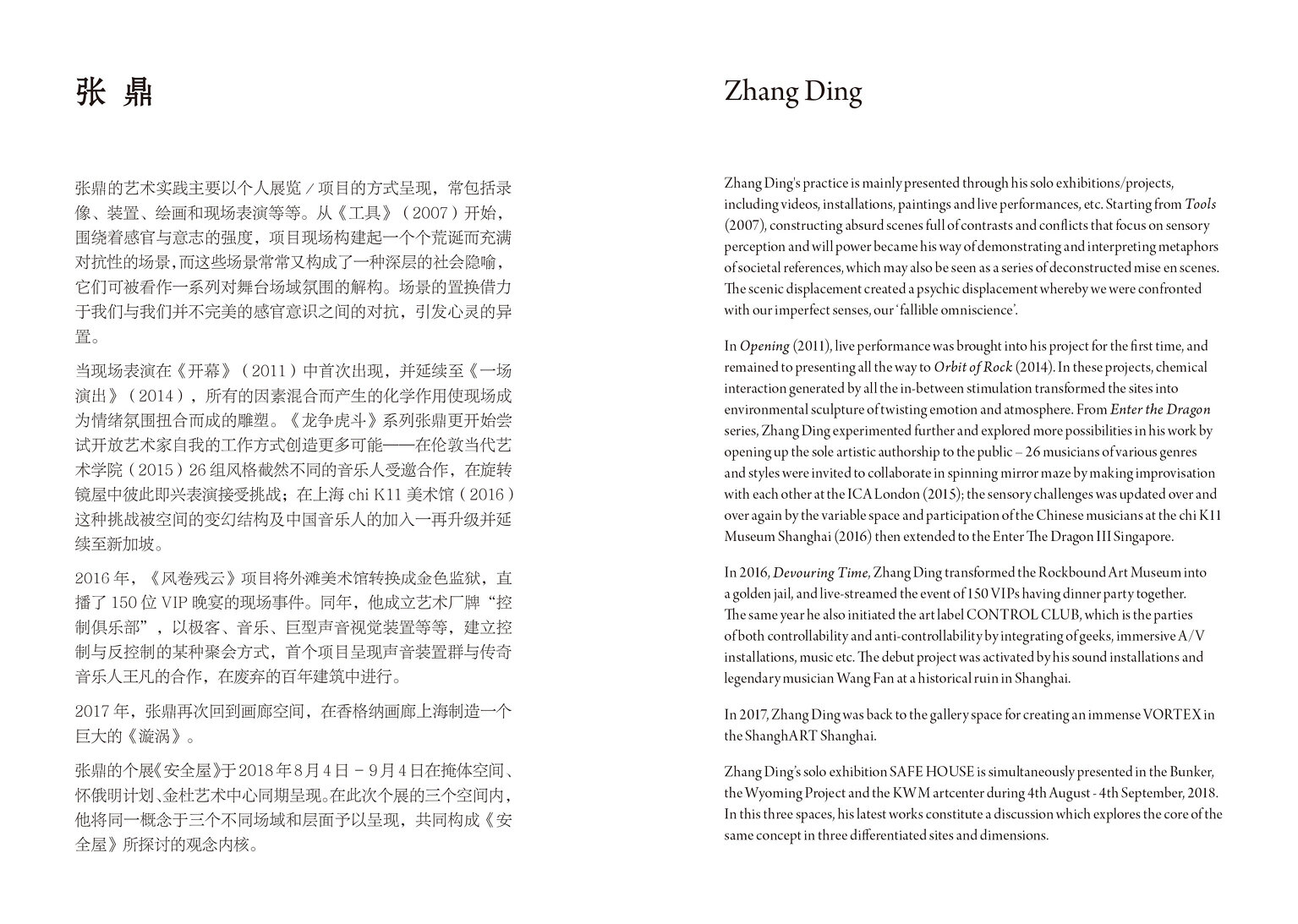
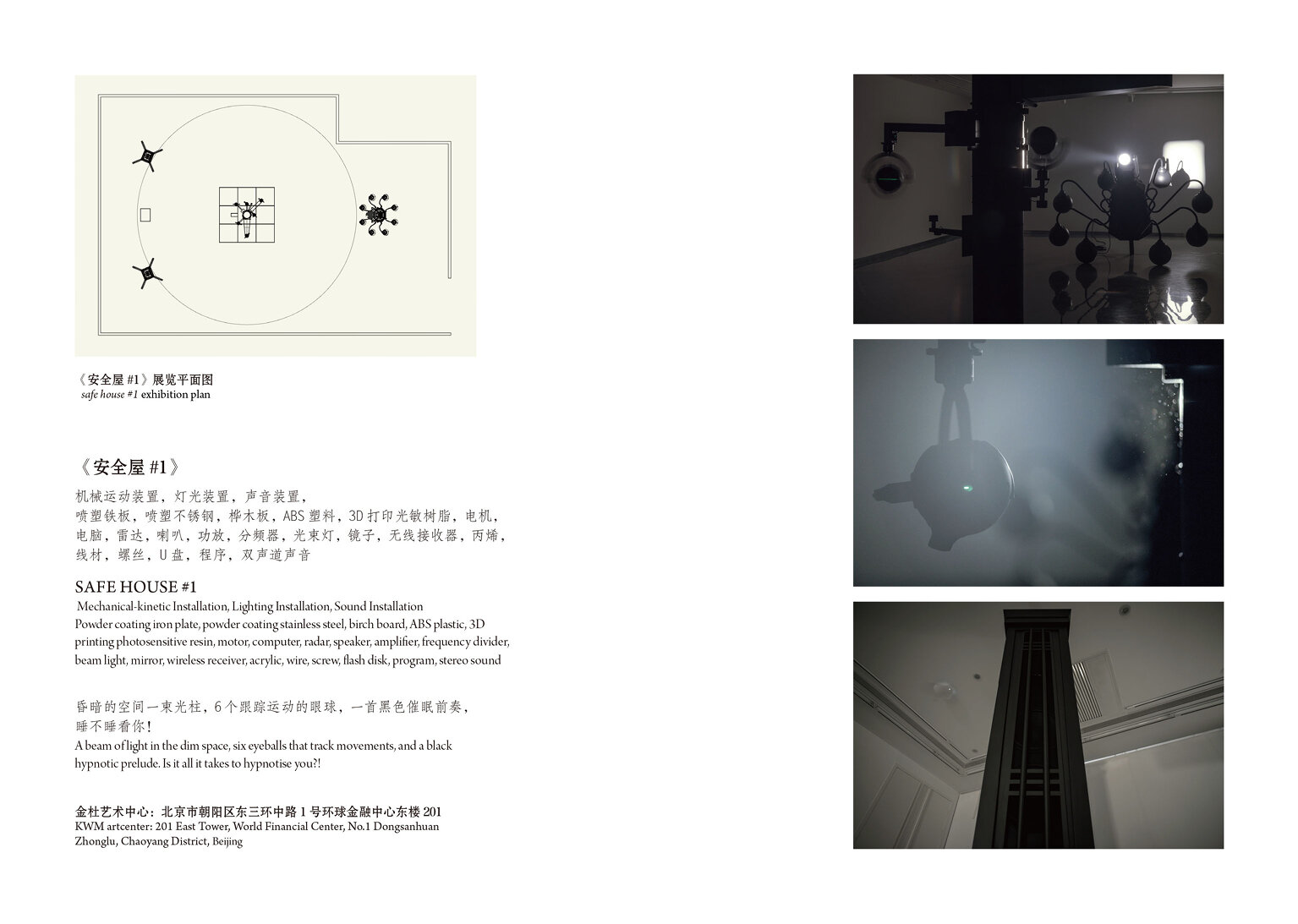
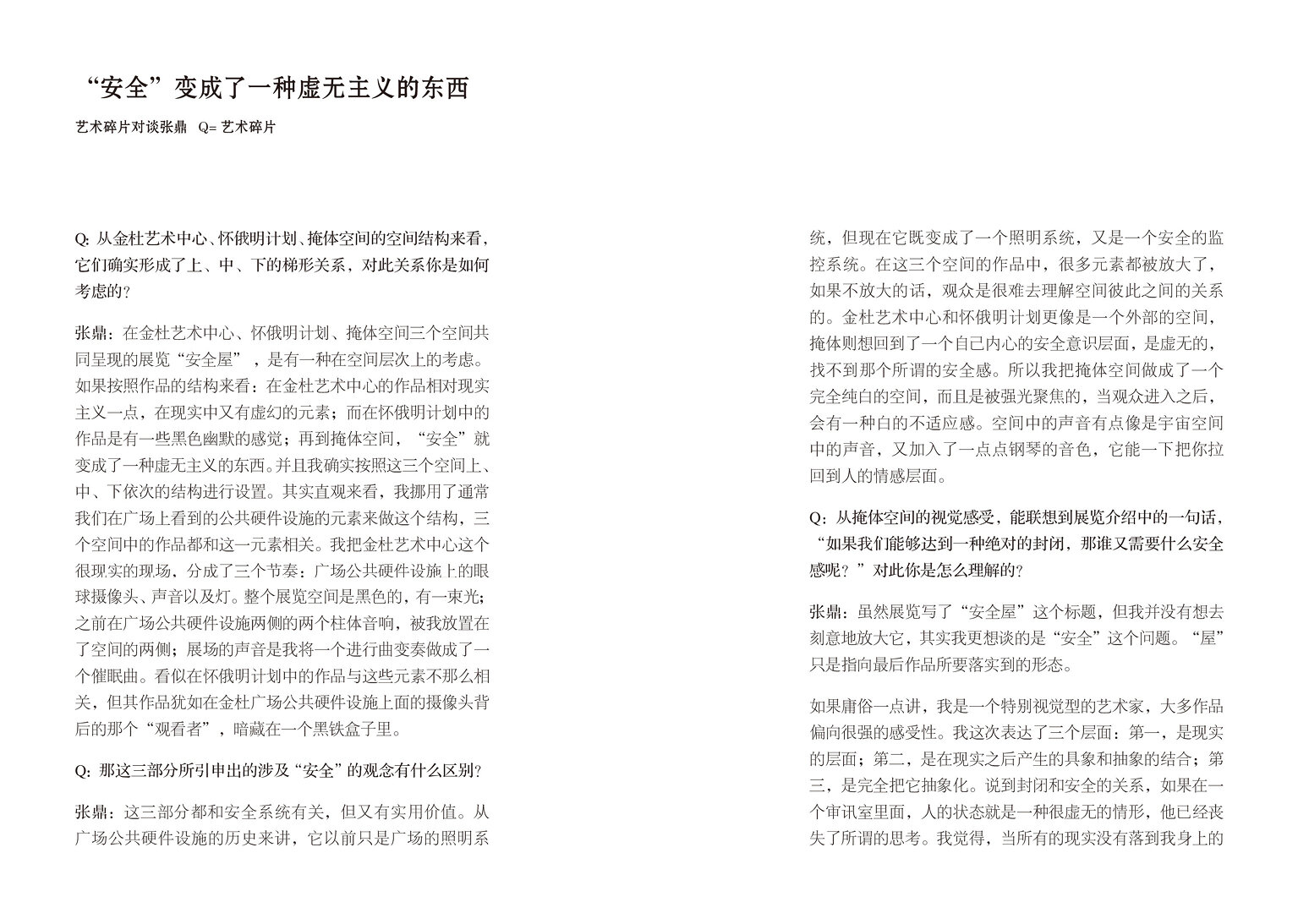
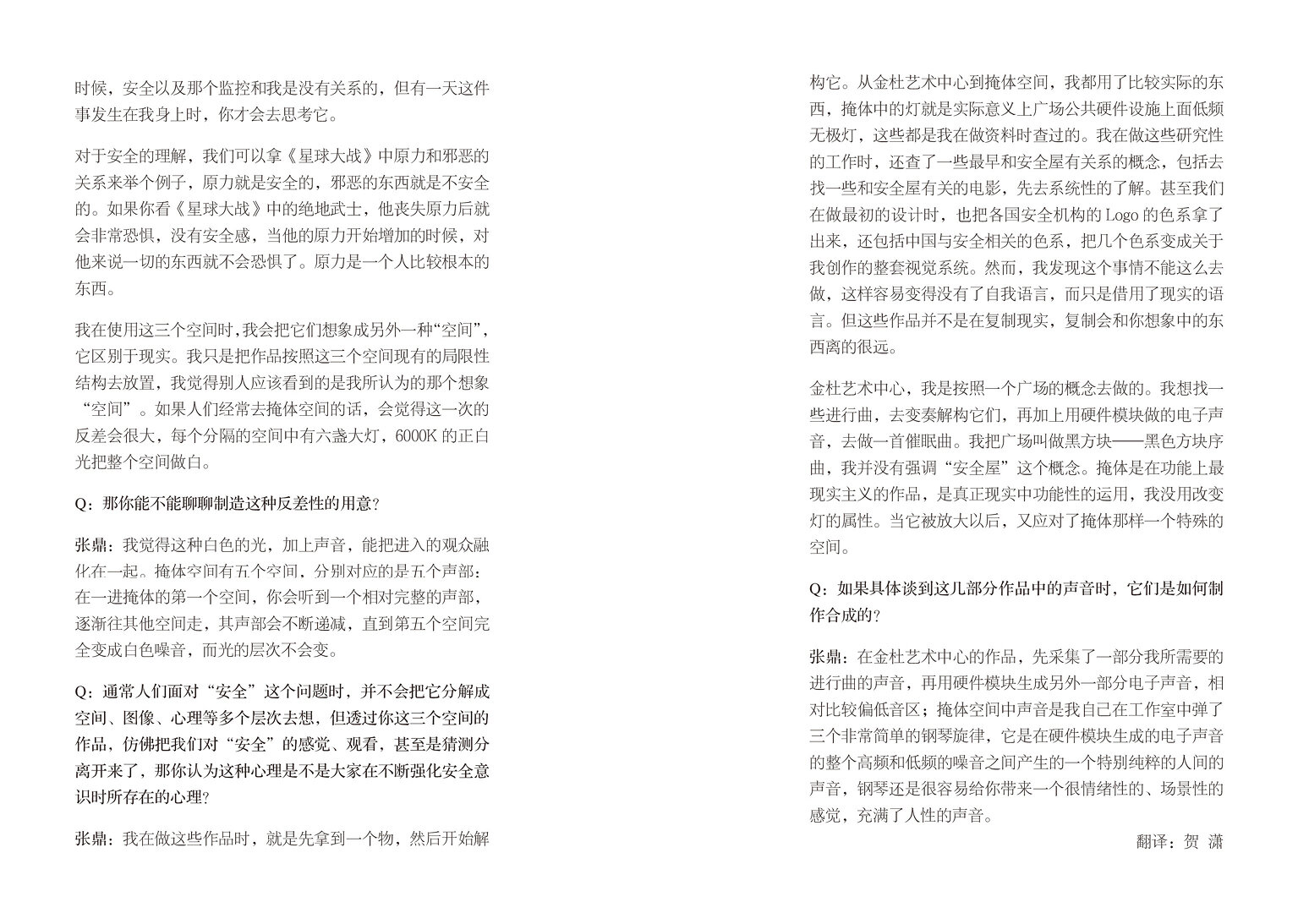
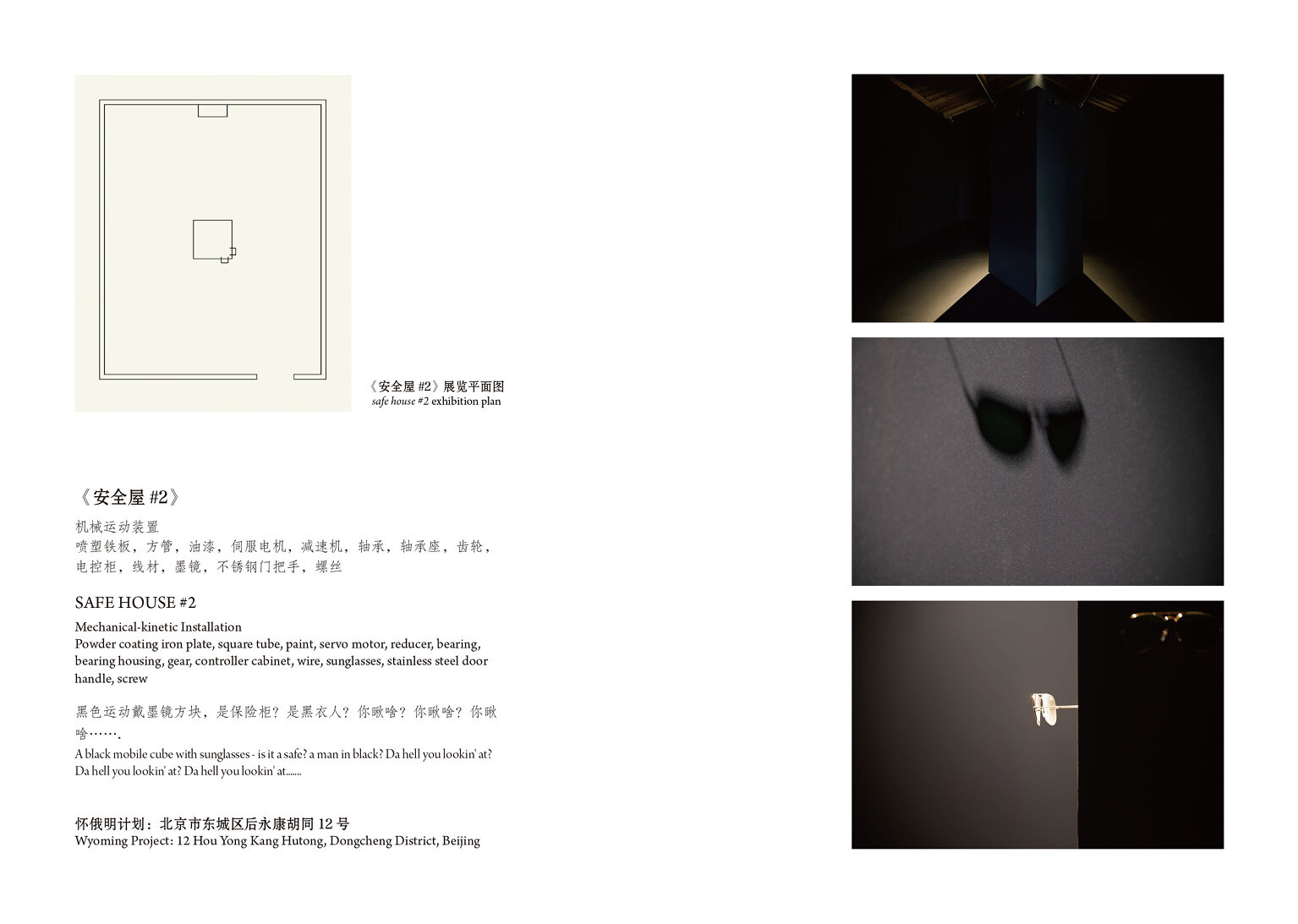
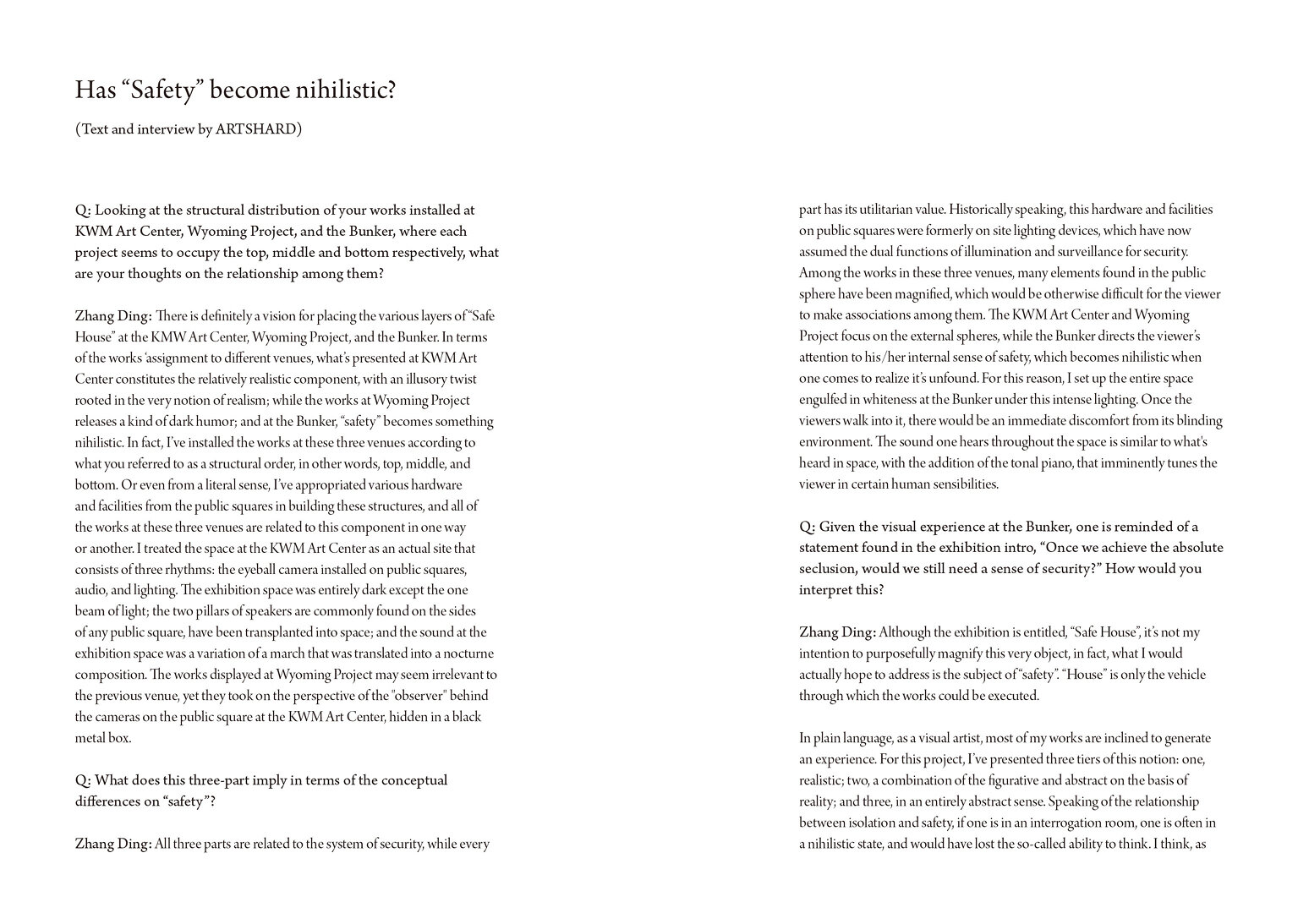
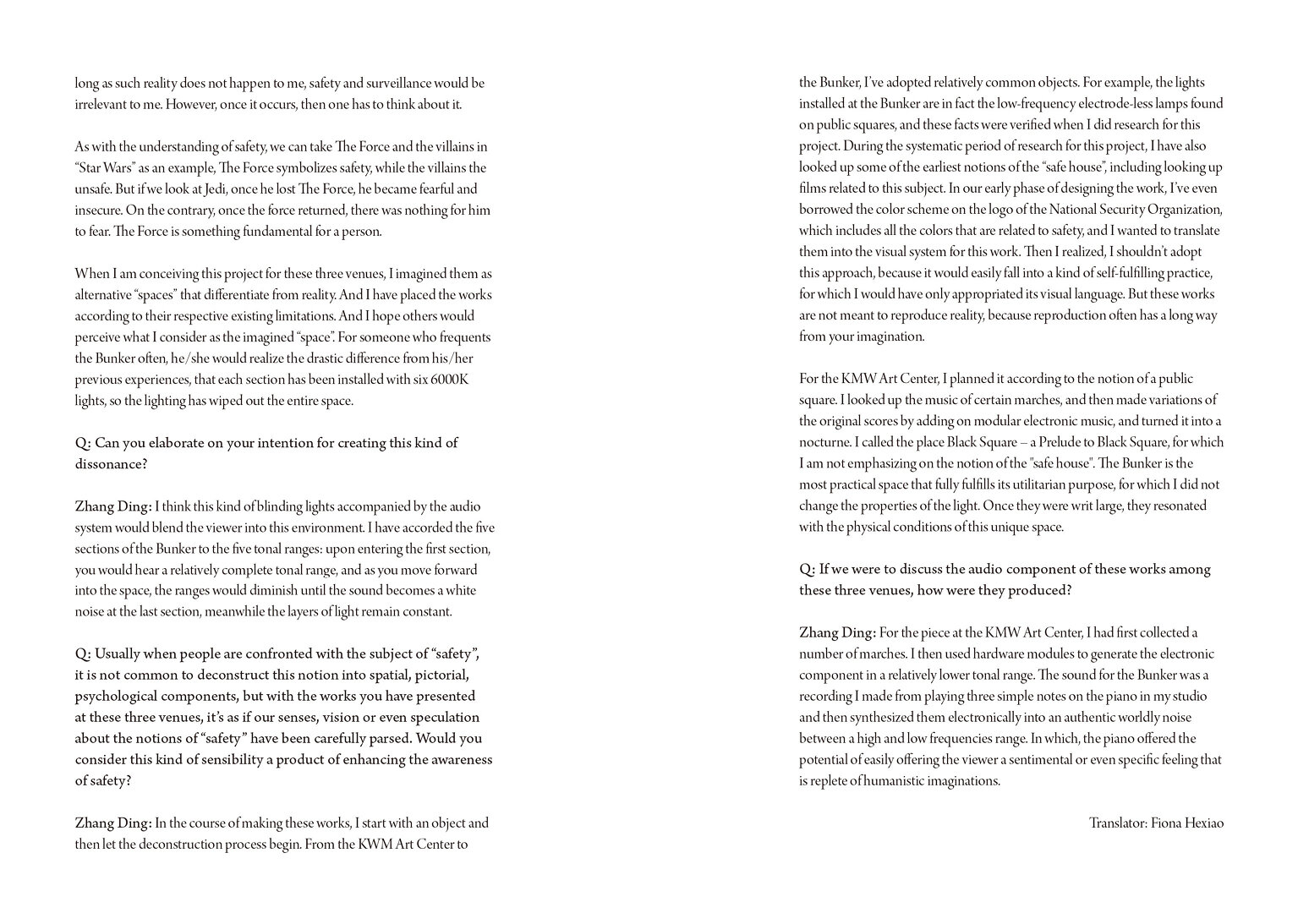
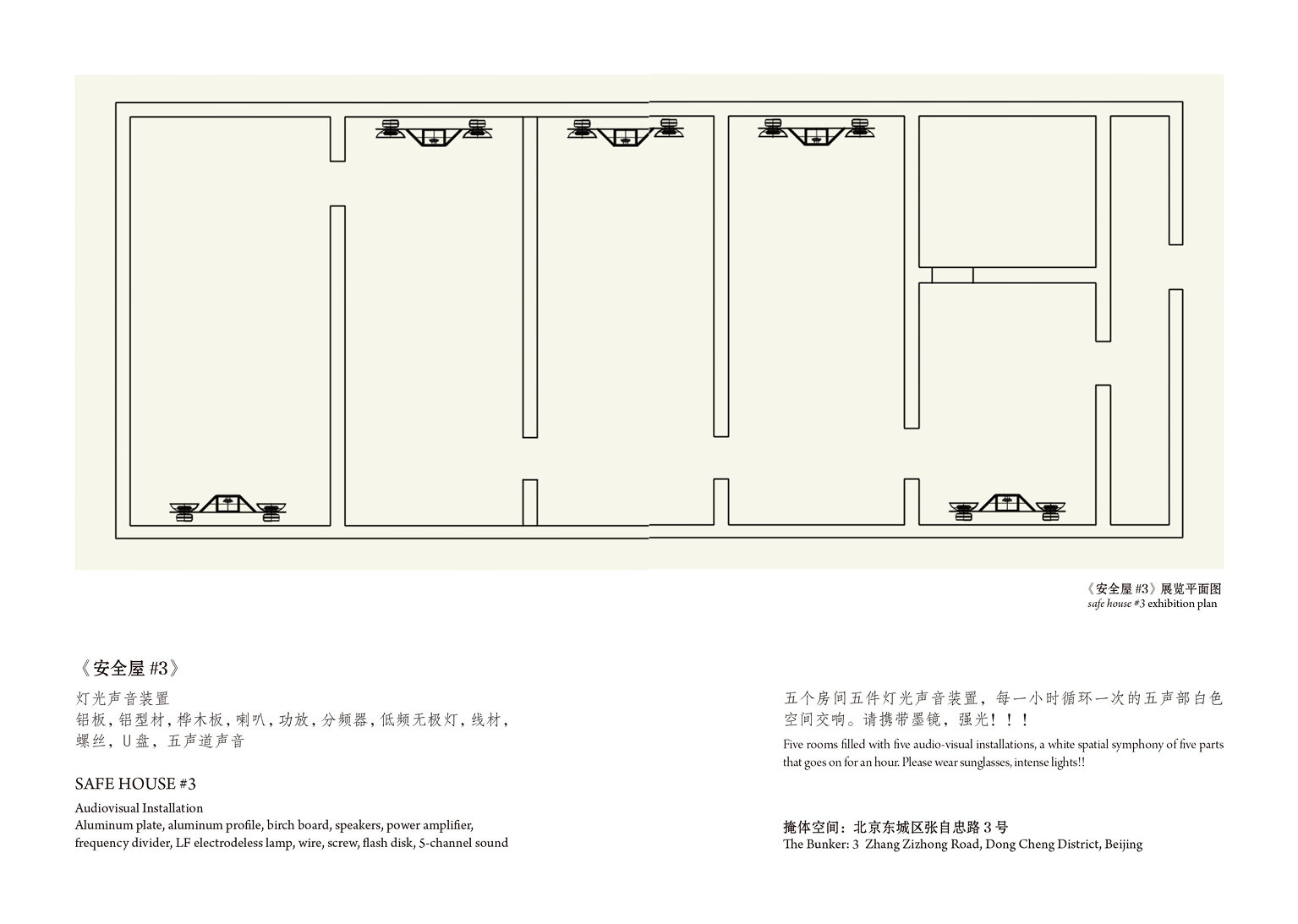
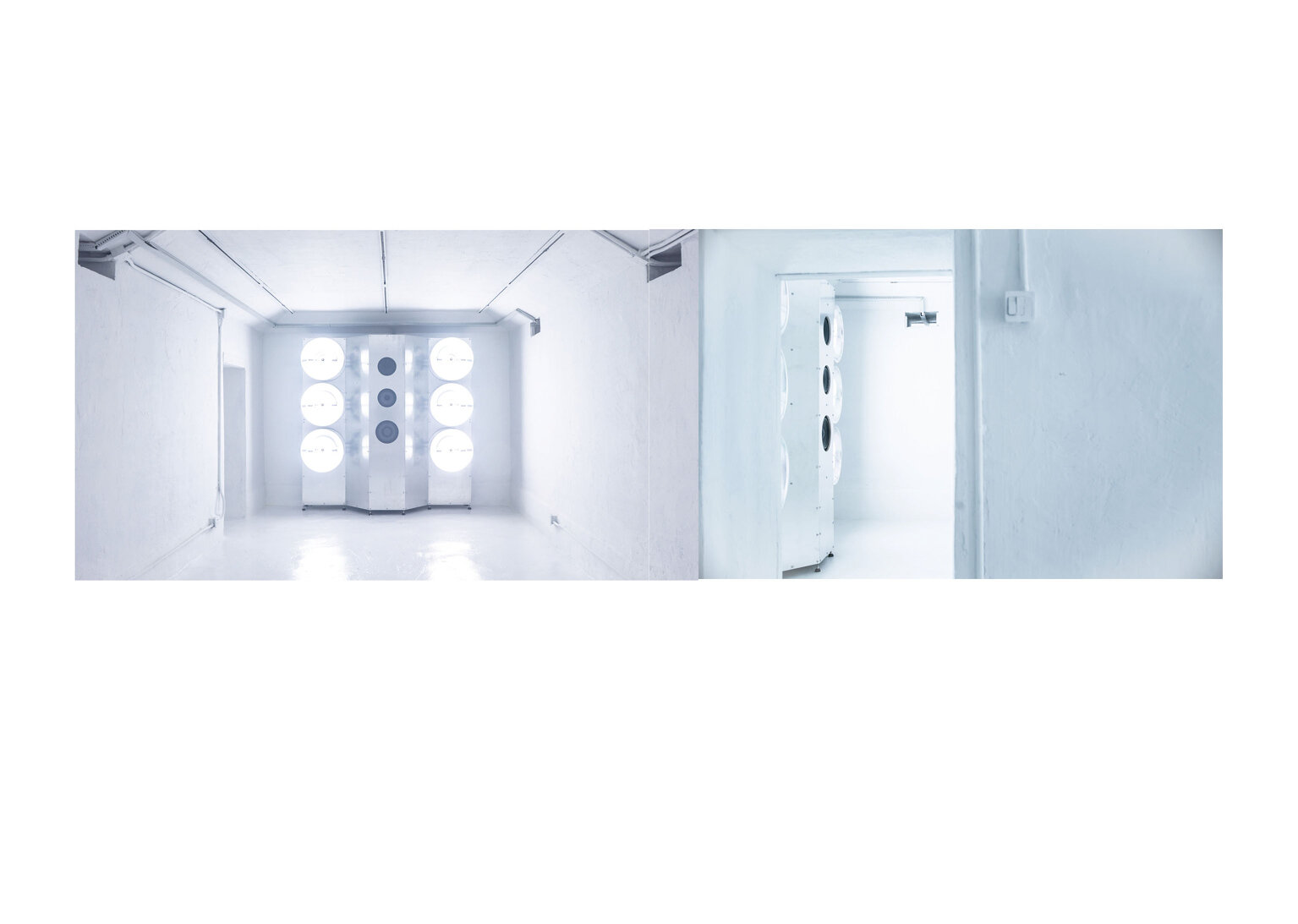
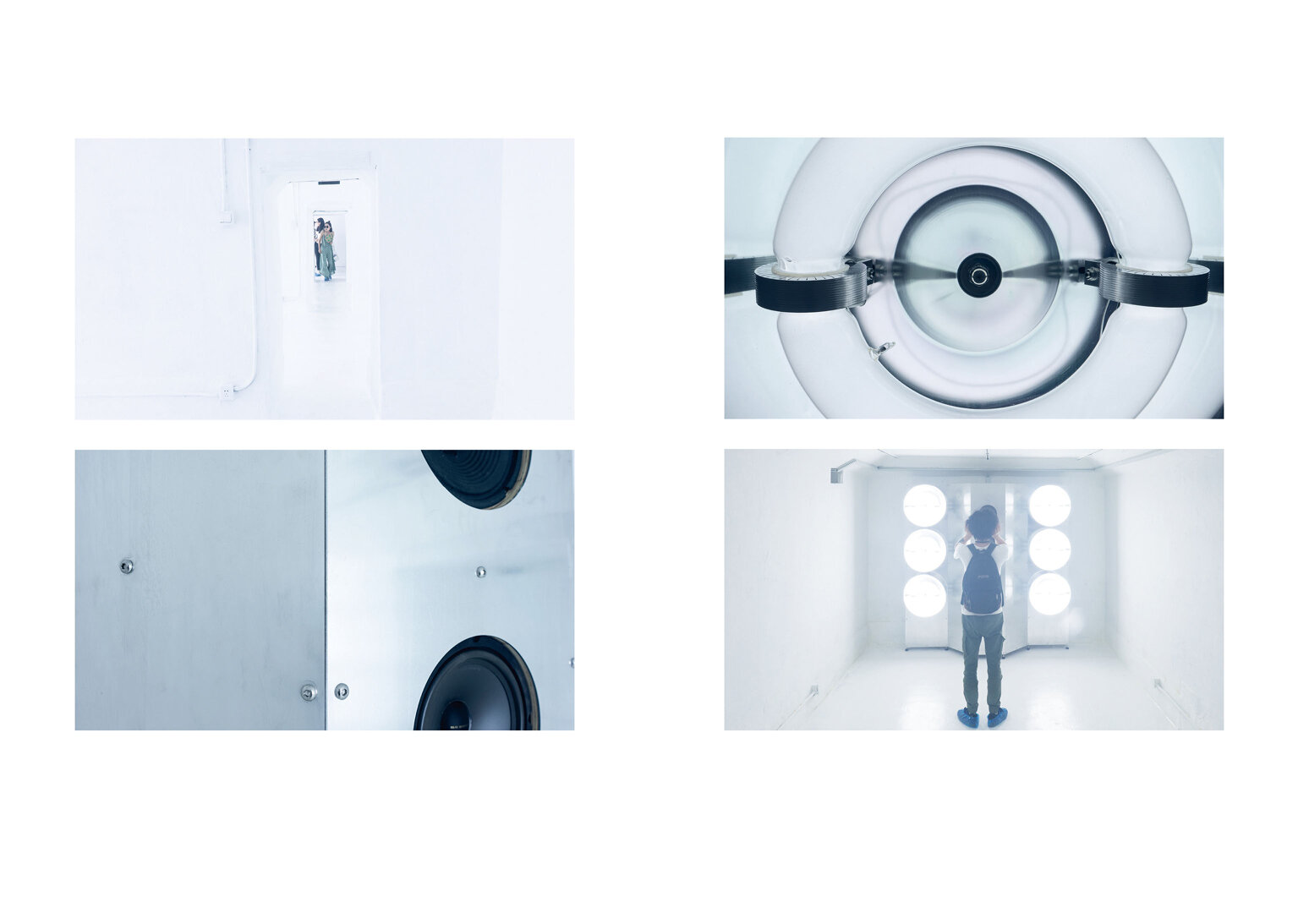
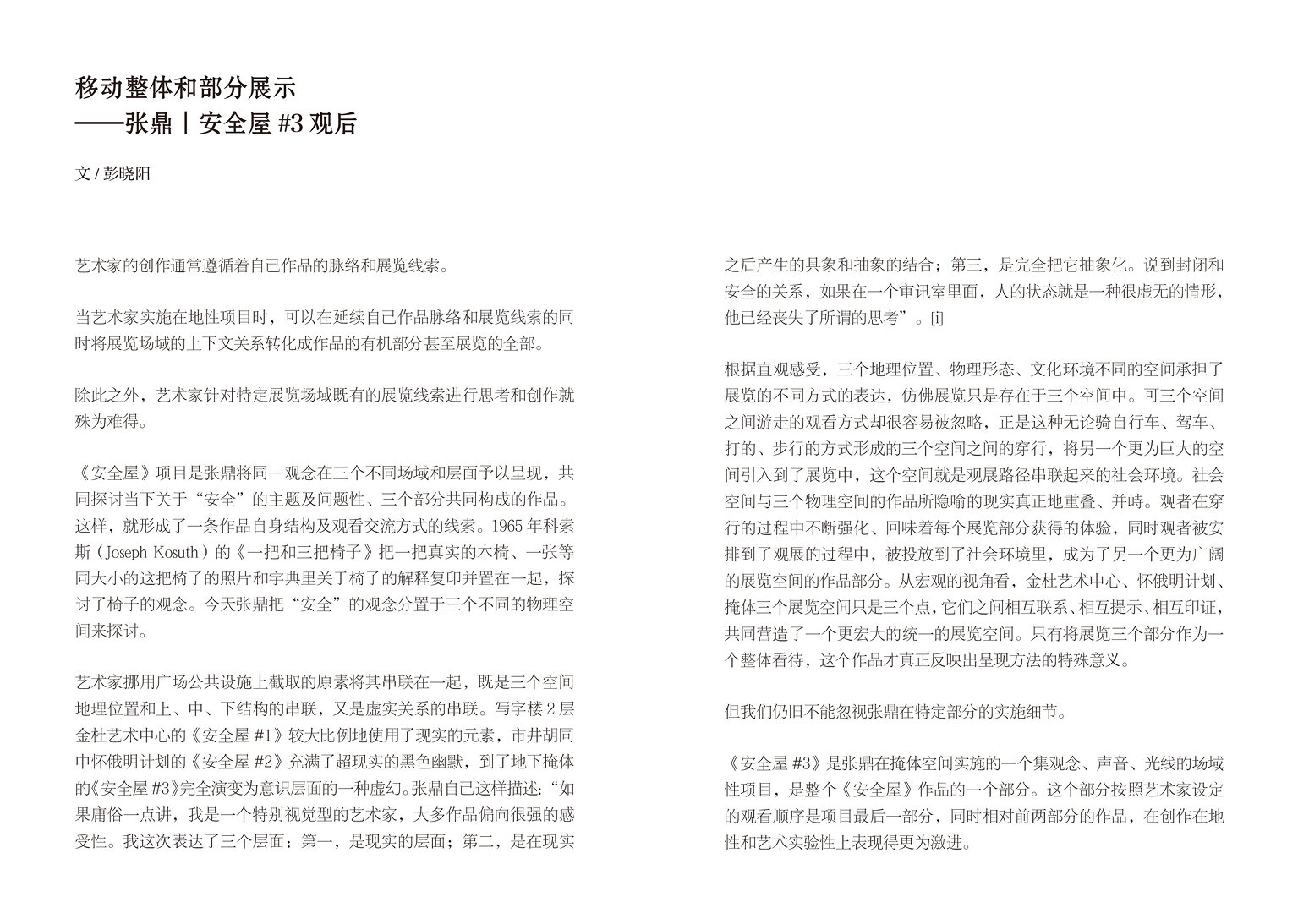
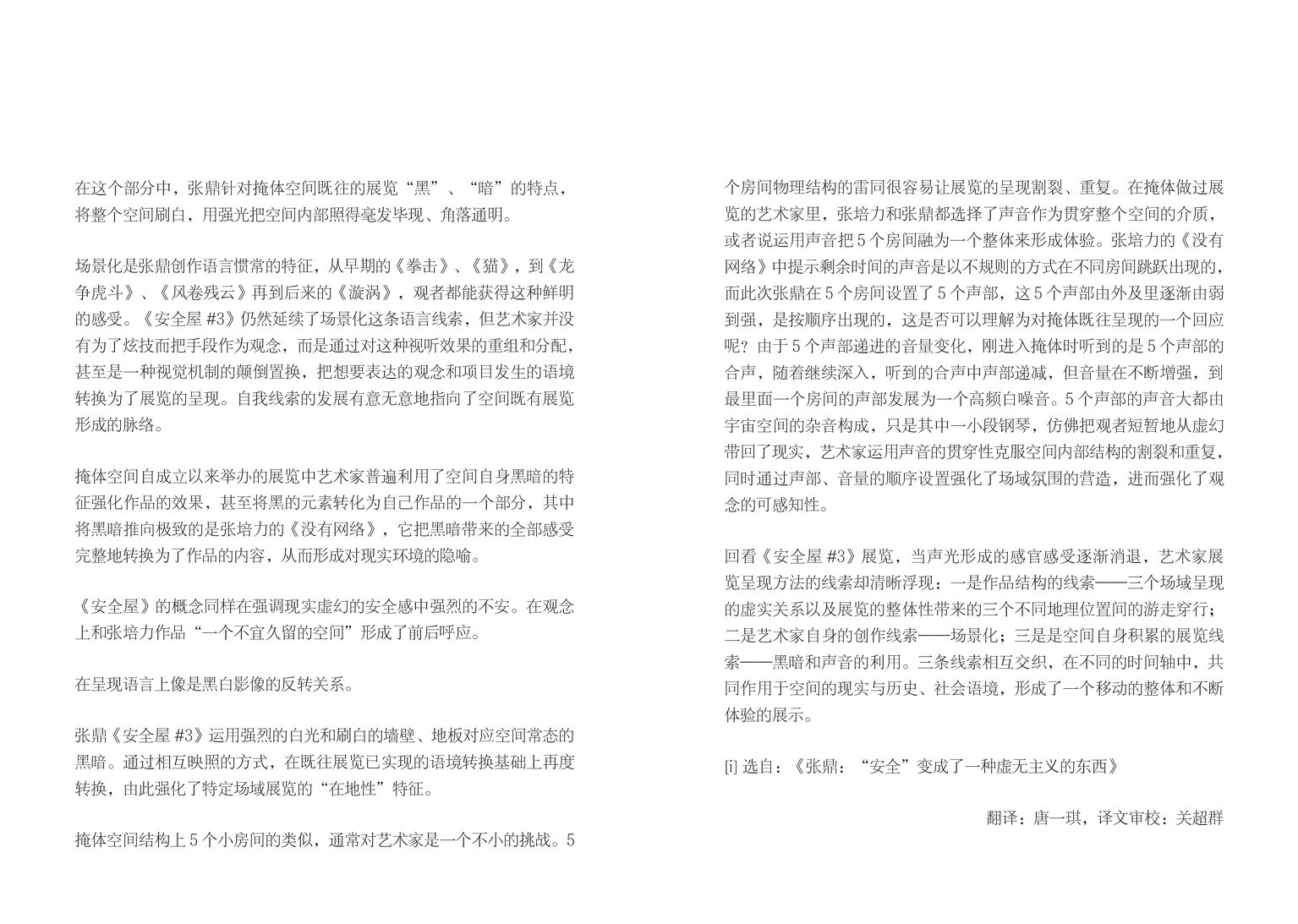
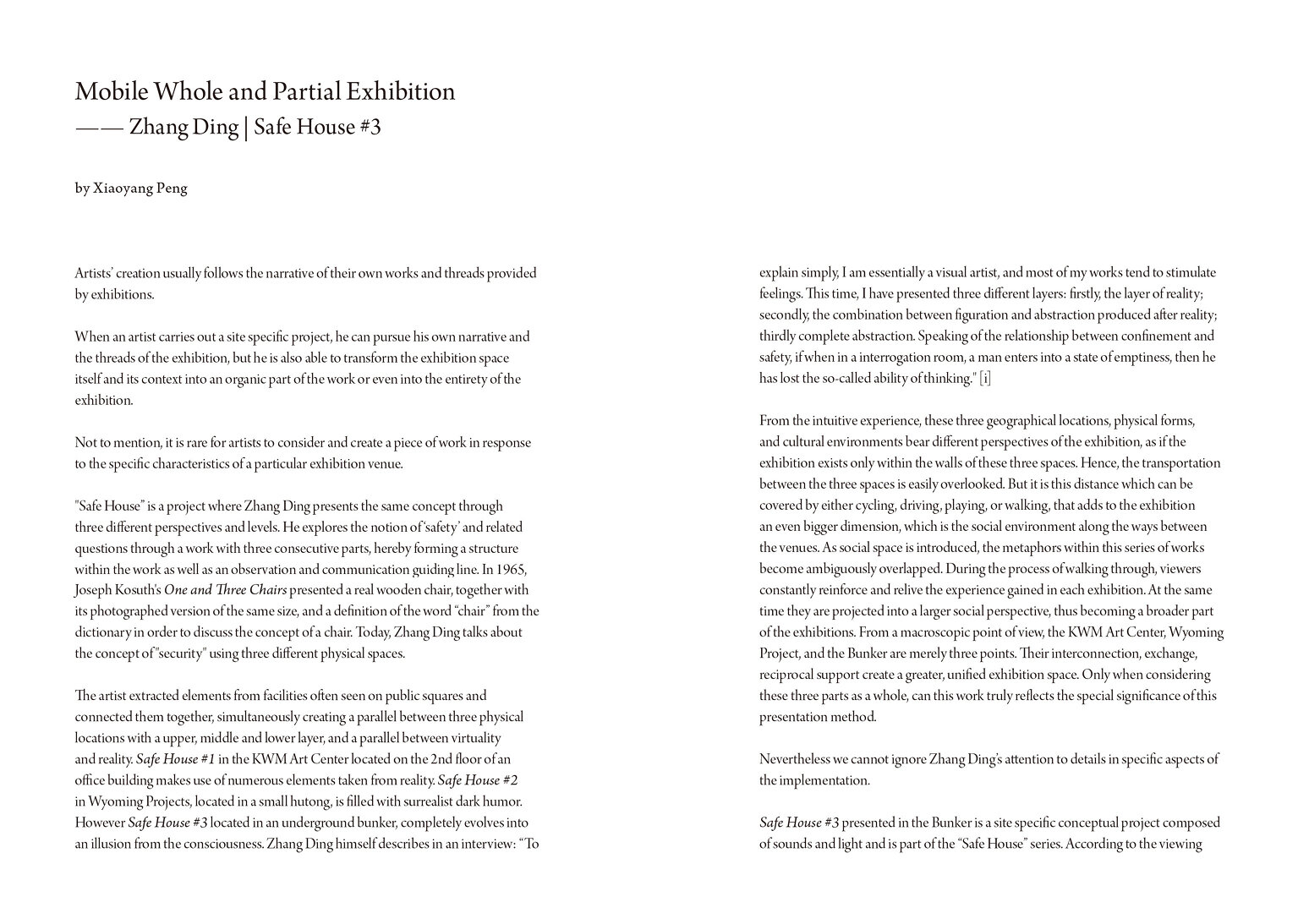
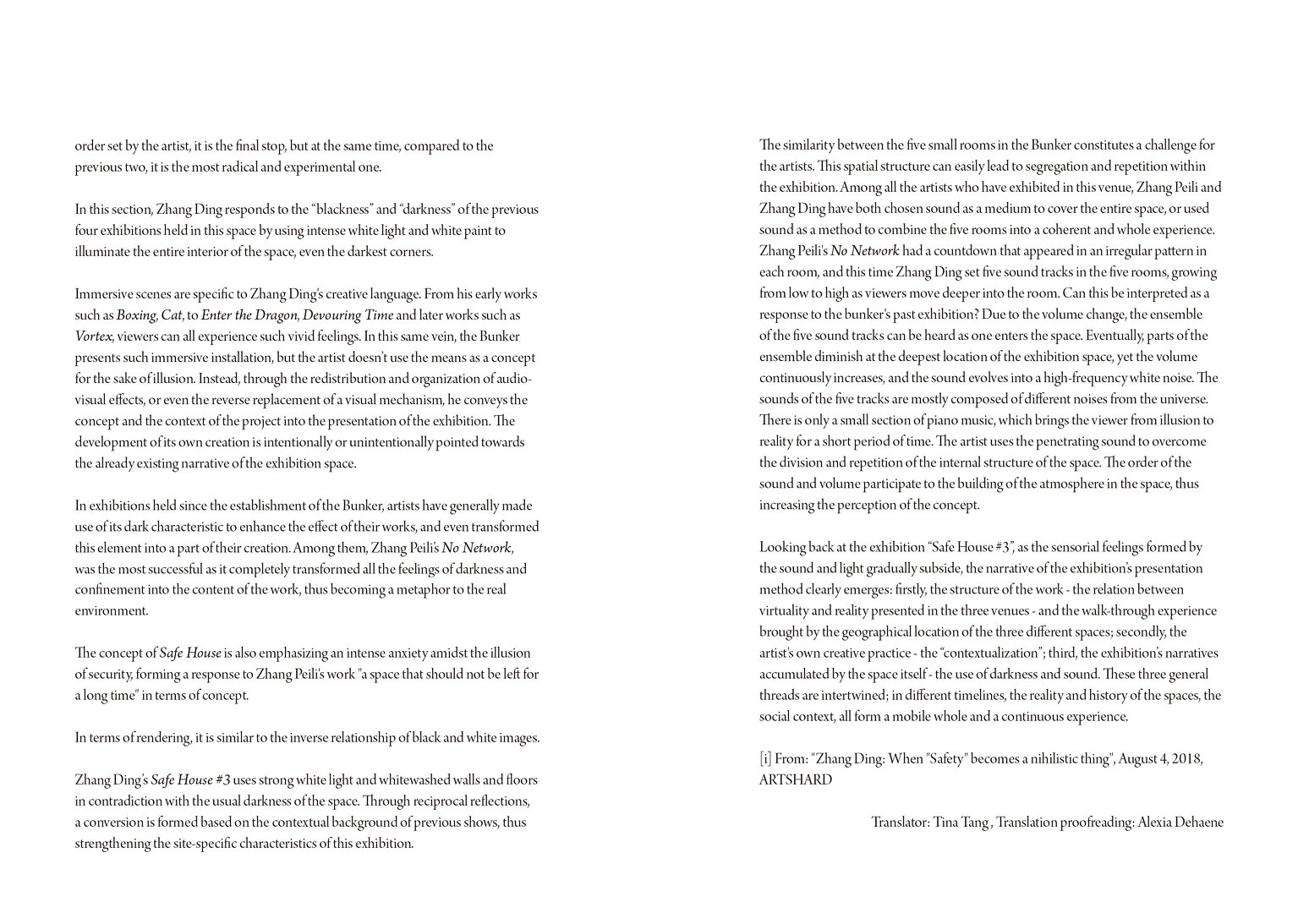
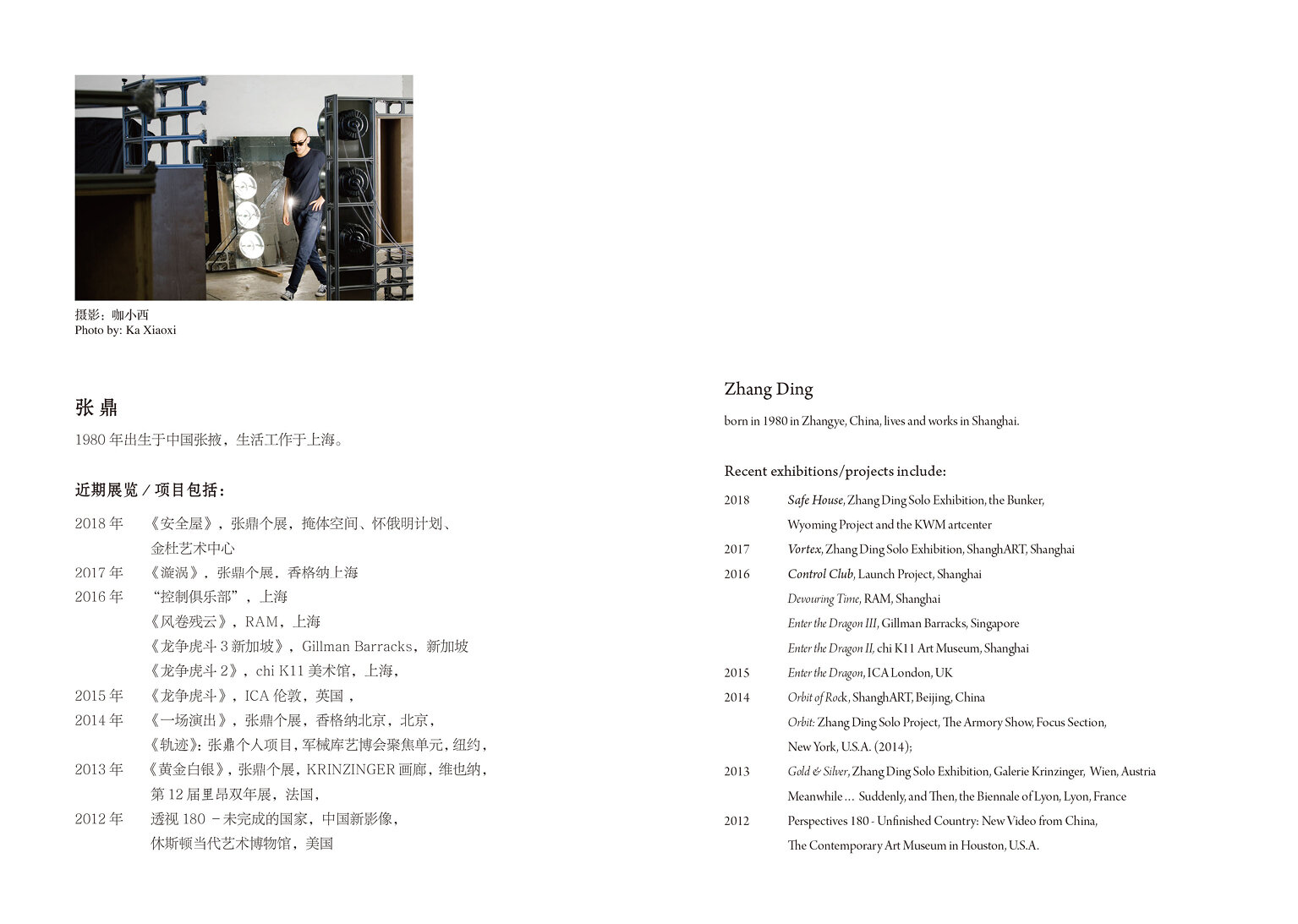
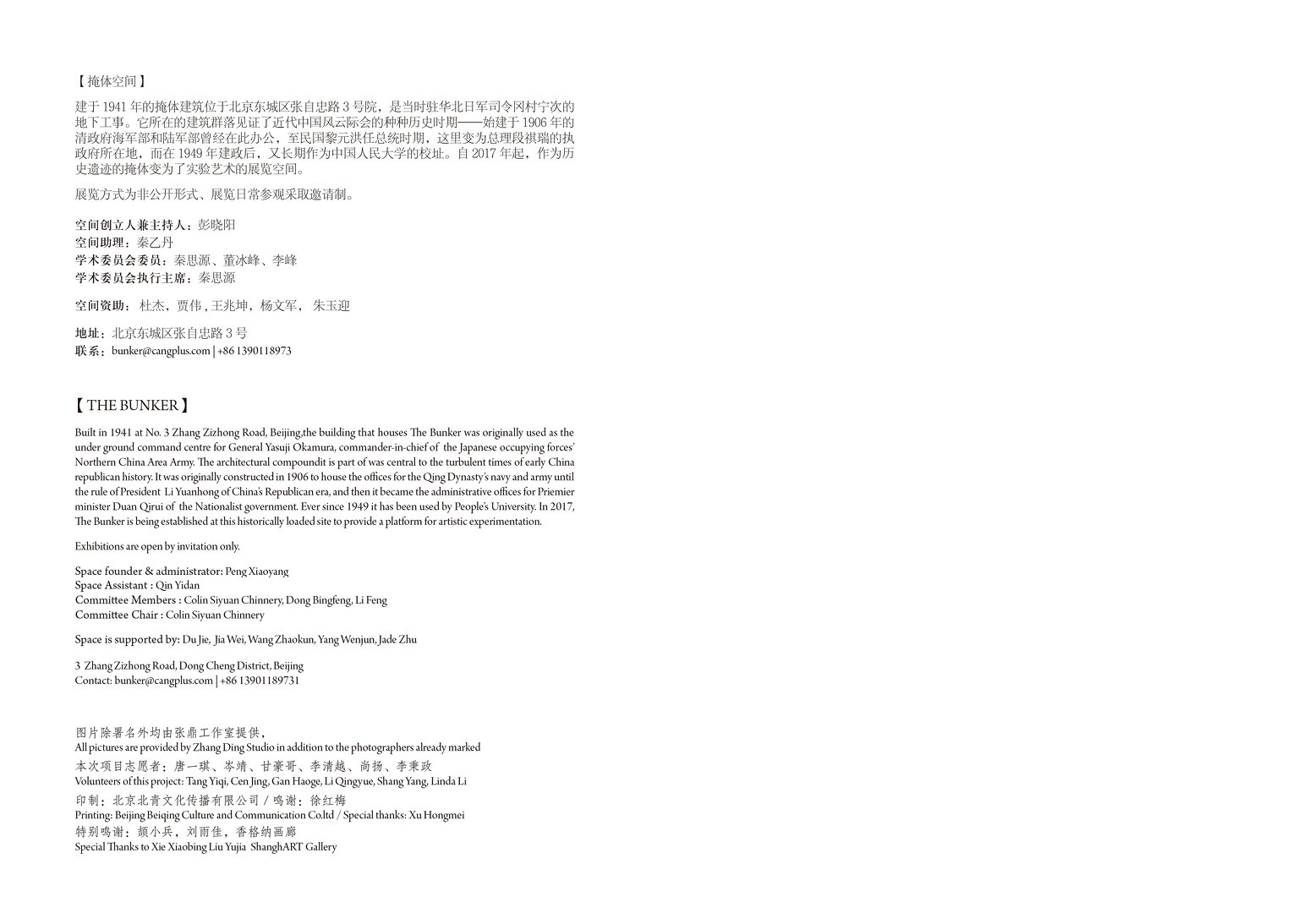
All rights reserved @the bunker















